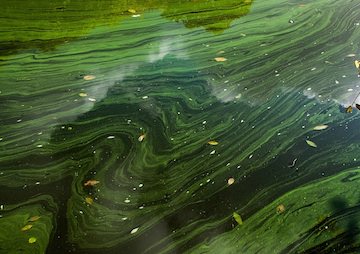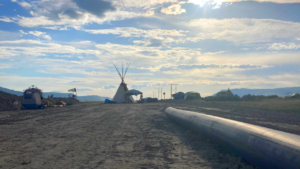Groundbreaking Biofuel Project Could Clean Up Mines Worldwide
If researchers succeed in using algae to harvest precious heavy metals in polluted water and simultaneously producing biofuel, toxic sites around the world could be made clean and ecologically well again. Photo by Bobby Mckay (CC BY-ND 2.0)
Photo by Bobby Mckay (CC BY-ND 2.0)
Photo by Bobby Mckay (CC BY-ND 2.0)
If researchers succeed in using algae to harvest precious heavy metals in polluted water and simultaneously producing biofuel, toxic sites around the world could be made clean and ecologically well again.
The GW4 Alliance brings together the UK universities of Bath, Bristol, Cardiff and Exeter, in collaboration with Plymouth Marine Laboratory (PML), the Coal Authority and waste management group Veolia to experiment with water taken from the Wheal Jane tin mine in Cornwall.
The Guardian reports:
The alliance is exploring whether the algae is effective in removing harmful materials, such as arsenic and cadmium, from the mine water. Researchers hope to convert the algae into a solid from which heavy metals can be extracted and recycled for use in the electronics industry. The remaining solid waste will then be used to make biofuels.
“It’s a win-win solution to a significant environmental problem,” said Dr Chris Chuck from the University of Bath’s Centre for Sustainable Chemical Technologies. “We’re putting contaminated water in and taking out valuable metals, clean water and producing fuel.”
… If successful, the scientists believe the technology could be used to treat many forms of environmental pollution. The team has just received funding to take its work to Vietnam, where it will examine whether algae can be used to treat industrial effluent. A cheap, efficient way of cleaning up old mines would be eagerly sought by countries around the world.
Dr. Mike Allen, director of the Algal Biotechnology and Innovation Centre at PML, said: “Acidic waste run-off from mines is not a regional issue restricted to Cornwall, it’s a global problem. … It’s a particular problem in the developing world, where costly clean-up and remediation activities are ignored because of their high cost and low return.
“By making the clean-up process pay for itself, we can improve both the health and the environment of millions of people around the world.”
It is well known that biofuel can be made from algae, but the processing costs are so high that it is not considered economically viable. Researchers hope costs can be brought down significantly by scaling the project up, cultivating large amounts of algae.
Remaining obstacles include turning the treated water into usable fuel. The water has to be heated at very high temperatures and under high pressure in order to remove nitrogen.
— Posted by Alexander Reed Kelly.
Your support matters…Independent journalism is under threat and overshadowed by heavily funded mainstream media.
You can help level the playing field. Become a member.
Your tax-deductible contribution keeps us digging beneath the headlines to give you thought-provoking, investigative reporting and analysis that unearths what's really happening- without compromise.
Give today to support our courageous, independent journalists.









You need to be a supporter to comment.
There are currently no responses to this article.
Be the first to respond.